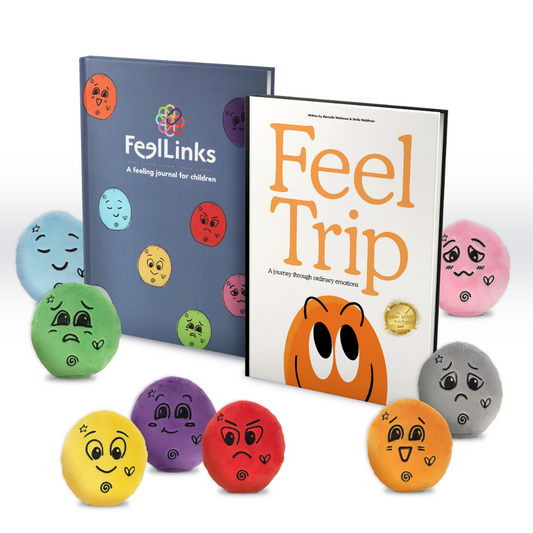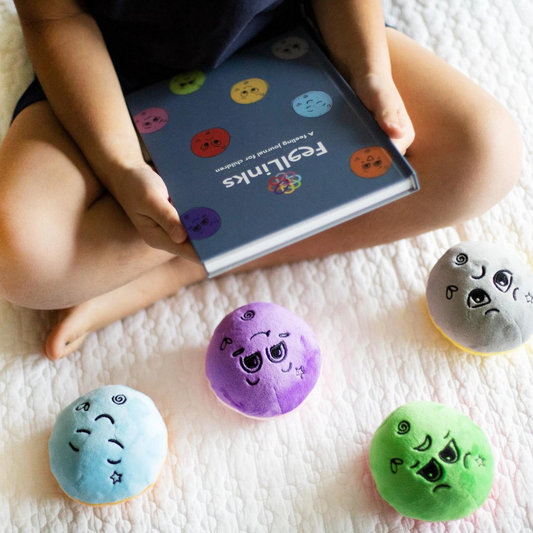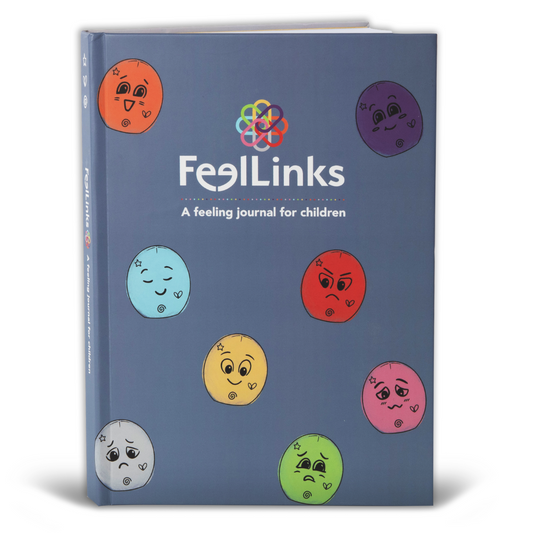Emotional Acceptance Or Suppression: What kind of parent do you aim to be?
Share

Did you grow up in a home where all feelings were accepted? Or a home where most feelings were off limits?
When I share FeelLinks mission with parents, educators, or any adult for that matter, I am often met with comments about how they grew up. Most of the time I hear that they grew up in home where all feelings were not accepted. I hear stories about being told to “toughen up,” “we don’t cry,” or “rage” or “happiness” were the only feelings in their household.
An age old saying…
“You get what you get and you don’t get upset!” Have you ever heard this saying, or have you used these words yourself? I have. I thought it was a cute little rhyme when I gave my kids snack, or the red colored plastic cup. I thought I was going to keep everyone quiet and prevent a meltdown over the “wrong” kind of cracker, or the “wrong” color cup. However, it did not take me long to realize what I was really saying to my child was, “keep your thoughts and feelings to yourself.”
Unfortunately, suppressing feelings, will ultimately be harmful to the mental health and well-being of our children, now and for their future.
So, what kind of parent are you aiming to be?
According to Dr. John Gottman, there are four types of parents. As you read each of these, think about which parenting style(s) you fit in to…and if you are so inclined, take the Gottman Institute Quiz: What Style of Parent are You?
The Dismissing Parent: This type of parent treats their child’s feelings as unimportant, ignores and disengages from the child’s feelings, wants negative emotions to disappear quickly, sees emotions as demanding, minimizing and downplays child’s emotions and events that led to them and does not problem solve with the child, believes time will just resolve the problems. Effects of this style on parenting on your child is learning that their feelings are inappropriate and not validate. They may learn there is something wrong with them because of the way they feel and will have difficulties regulating emotions.
The Disapproving Parent: This type of parent displays much of the Dismissing Parent, but in a much more negative way. This parent judges and criticizes emotional expression, emphasizes conformity to “good” behavior, believes tough emotions need to be controlled, emotions make people weak and children must be tough for survival, and believes negative emotions are unproductive and a waste of time. Effects of this style of parenting on your child is the same as the Dismissing Parent (above).
The Laissez-Faire Parent: This type of parent accepts all emotions and expression, offers very little guidance on behaviors, does not set limits, believes there is little you can do about tough emotions other than ride them out, does not help children solve problems and believes that managing tough emotions is a matter of releasing them and then the work is complete. Effects of this type of parenting on the child are they don’t learn to regulate emotions, they have difficulty concentrating, forming relationships and getting along with others.
The Emotion Coach: This type of parent values the child’s tough emotions as opportunity for connection, is self-aware and values their own emotions, sees the world of tough emotions as an important part of parenting, does not make light of tough emotions, does not tell the child how they should feel, and uses emotional moments as time to connect, listen, empathize, soothe, help the child label emotions, offers guidance on regulating emotions, sets limits and teachers acceptable behaviors, responses and problem-solving skills. Effects of this type of parenting are children learning to trust their feelings, regulating and problem solving. Children have higher self-esteem, learn well and get along well with others.
Will you try your best to be the "Emotion Coach Parent" and accept all feelings, empathize and connect with your child?
We want to welcome children’s feelings and let them know that we accept all feelings. Even if we see the situation or experience as “no big deal,” it is affecting your child and it’s vital to listen and validate what they are expressing. Not only are we validating how our children are feeling, but we are showing them that all feelings are safe to express with us. Additionally, we are helping our children build confidence in reading other’s emotions. We want our children to be able to read other’s feelings; when something might be unsafe, when it’s time to speak up, or when to ask for help.
If you plan to be the Emotion Coach Parent, it will take work and dedication. You will need to work hard to approach your child with patience, empathy, validation, and problem-solving support.
I hope you will take time to teach this vital emotional literacy to your child. You will be contributing to a healthy mental and emotional well-being for your child for today and their future.
FeelLinks journal and emotion dolls are intended to support your child and you in tuning in to emotions and building emotional intelligence skills. FeelLinks website has free resources and blog posts to support you as well. Head over and take a peek!
Dive further into this topic with me on my most recent podcast episode with The Preschool Podcast. I hope you take a listen and gain education, support, and some golden nugget take-aways, in my episode: How to Talk About Feelings and Promote Emotional Intelligence.

With Gratitude,
Marcelle
🌎 Together we can create a kinder, more compassionate, and inclusive world 🌎





